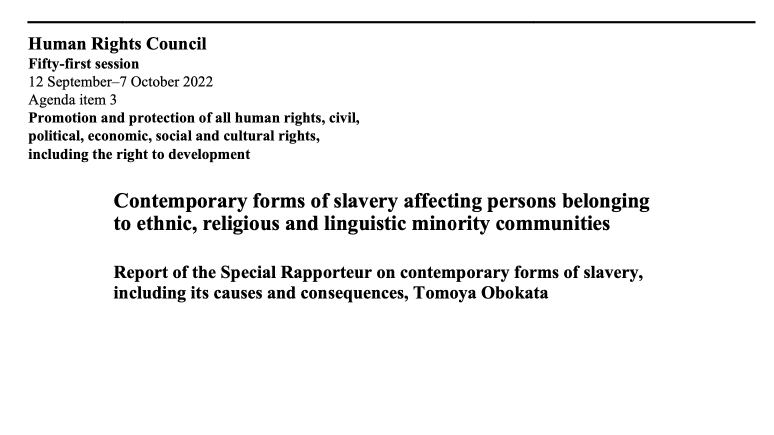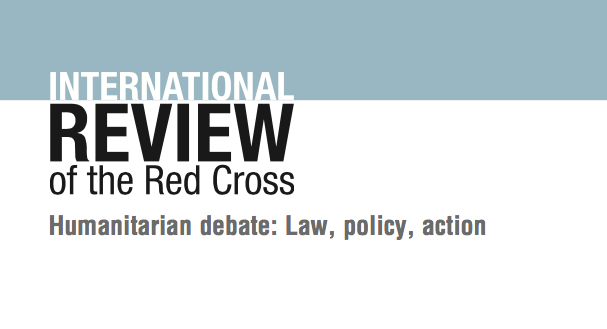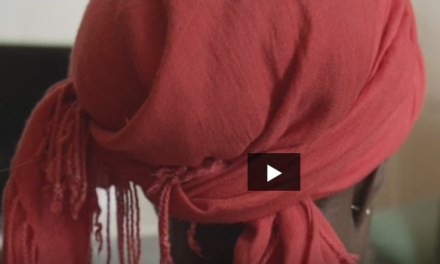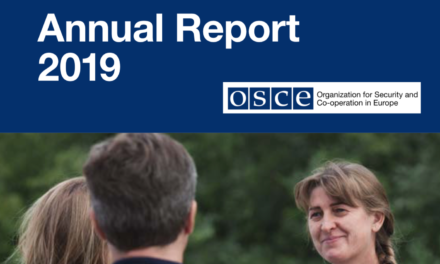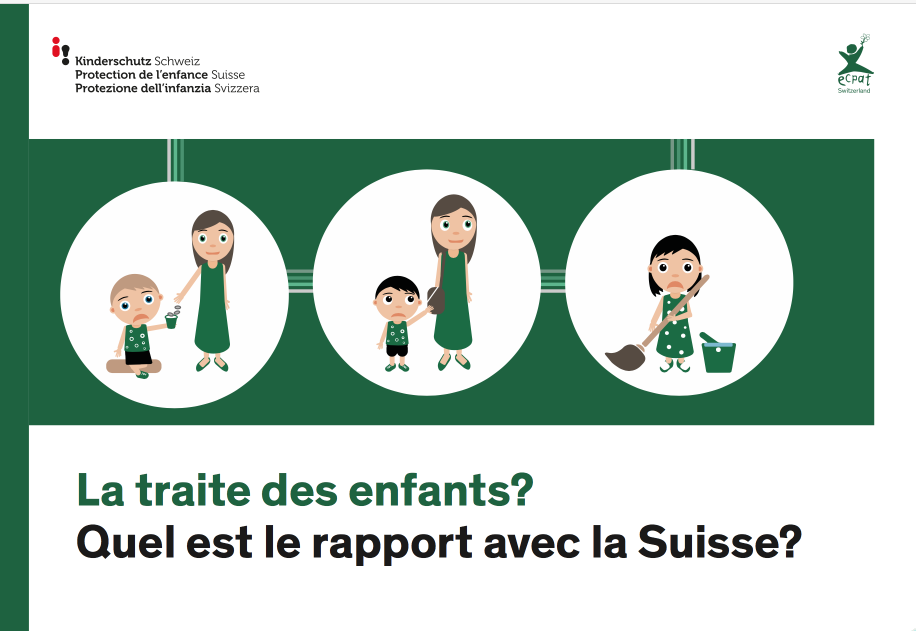I. Introduction
1. The year 2022 marks the thirtieth anniversary of the Declaration on the Rights of Persons Belonging to National or Ethnic, Religious and Linguistic Minorities. To commemorate the adoption of this important instrument, the Special Rapporteur focuses the present report on the vulnerabilities and lived realities of minorities with regard to contemporary forms of slavery. The scope of the report is not limited to national minorities, as it also covers non-citizens such as migrant workers, many of whom are minorities in destination States.1 The Special Rapporteur will also assess the experiences of people who are discriminated against based on work and descent, such as those subjected to caste-based discrimination or descent-based slavery, as they can be regarded as part of an “ethnic minority”.2 Indigenous peoples may experience similar causes and consequences of contemporary forms of slavery, but the present report does not focus on them as that would merit a separate analysis.
2. To inform his research, the Special Rapporteur issued a call for input to a wide range of stakeholders, including Member States, national human rights institutions, civil society organizations, United Nations entities and regional human rights bodies. He wishes to thank all entities who responded and welcomes the engagement demonstrated in this process.3 The Special Rapporteur also drew on information gathered from desk research and consultations with multiple stakeholders.
 Loading…
Loading…
 Loading…
Loading…

